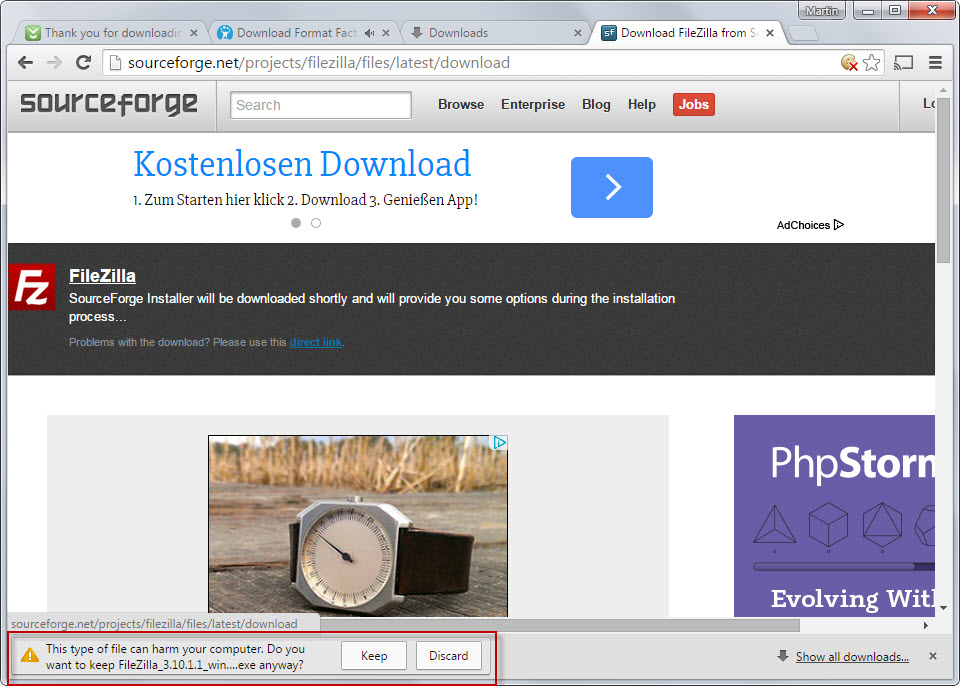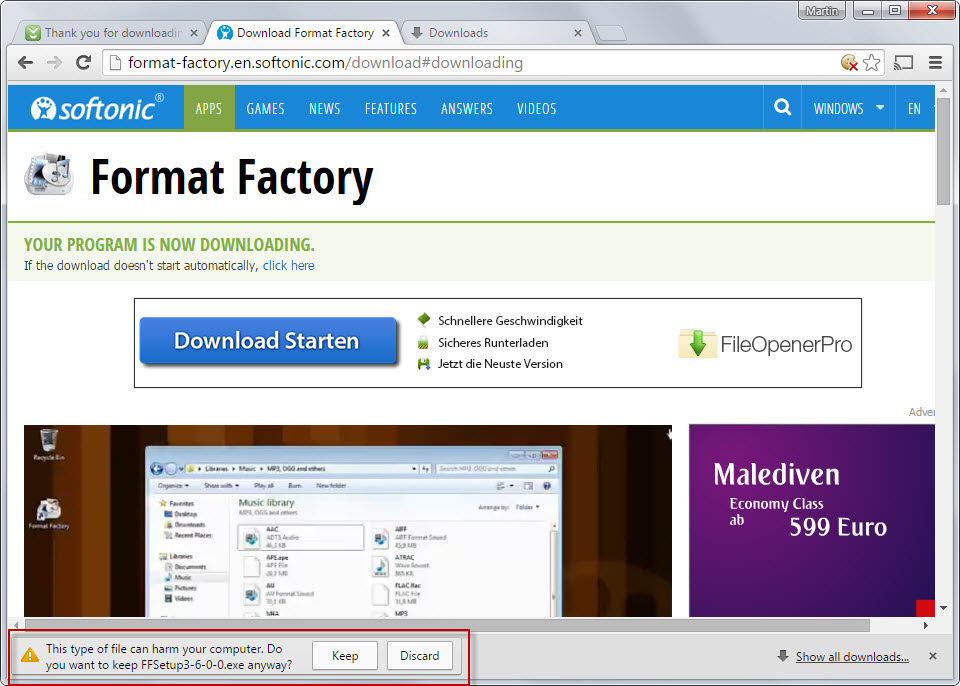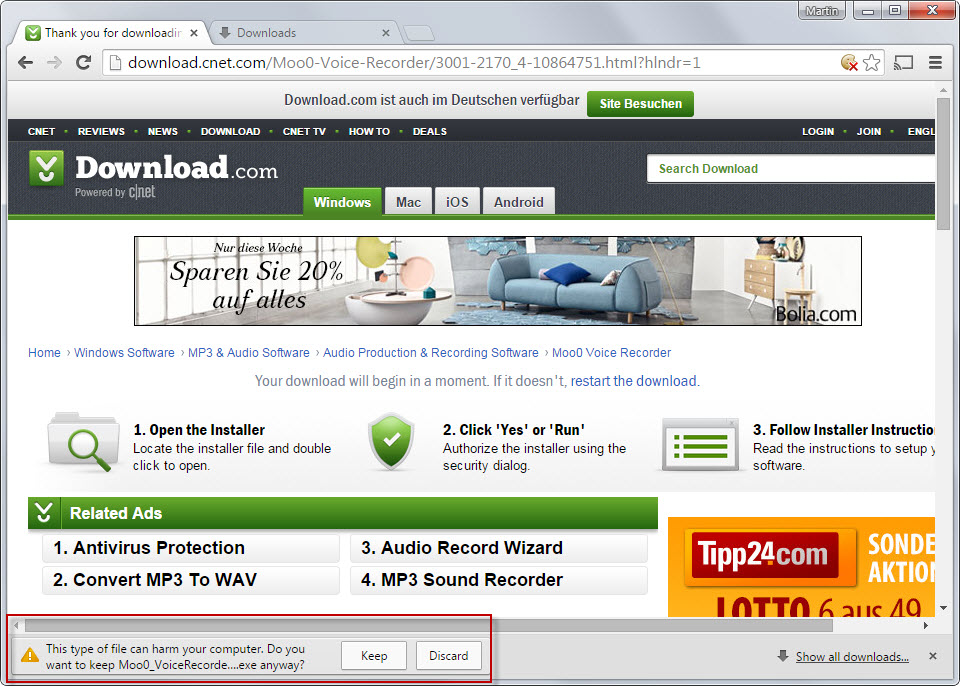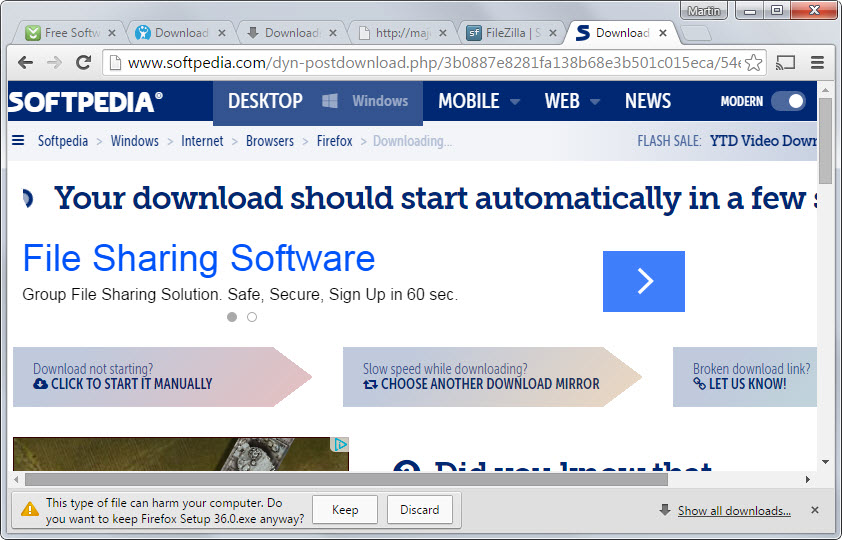This type of file can harm your computer warning in Chrome
Google announced recently that it made the decision to improve protection against unwanted software downloads in the Chrome browser and Google search.
The company did not reveal which sites would be affected by this and it was unclear if major download sites such as Sourceforge, Download.com or Softonic would get a pass or not.
Update: The messages don't show up in Chrome Stable yet.
Update 2: It appears that Chrome warns before downloading any executable file regardless of origin. It even displays a warning when you try to download Google Chrome from Google.
Google Chrome users who download files on many download sites as of today are starting to get warning messages for any file offered on those sites.
It is interesting to note that this seems to apply to all file downloads on those websites even those that are delivered directly and not wrapped in adware installers, and that it even affects some portals that don't use wrappers at all.
The message displayed in Chrome is always the same: This type of file can harm your computer. Do you want to keep "filename" anyway?
The options that Chrome provides are to keep the file which saves it to the local hard drive or discard the file instead which removes it again.
As mentioned in a previous article, Chrome downloads these files completely to the system even before you make a decision but displays unconfirmed downloads as Unconfirmed xxxxxx.crdownload files on the system until you make a decision.
Only Chrome displays the warning message. Neither Chromium nor Firefox, which uses Google's Safe Browsing database as well, display it at the time.
Google is doing the right thing in my opinion even though it may not be enough, as the warning is not highlighting why that program is potentially dangerous. A better explanation, maybe even with a link to a help page offering further information would be welcome.
One side-effect of displaying the warning for all program downloads, even direct ones that don't contain wrappers, is that people may associate "bad" with the company developing the software and not with the download portal.
This too could be resolved by improving the algorithm and information displayed on the screen to make it clear that the download site is the offender and not necessarily the company that developed the program.
So which sites are affected by the message? Sites that are known to wrap downloads in advertisement packages such as Sourceforge, Download.com, Filehippo and Softonic are but it may come as a surprise that other download sites such as Softpedia which don't wrap downloads in adware installers are also affected by this.



So, here is my problem with that.
First of all, the message should only be displayed if software is offered in wrappers or if software itself contains adware offers.
The system right now does not seem to make a distinction between any of that. If you download Firefox from Softpedia you get a message that the file could harm your computer even though the download and installer are clean.
That's bad for Softpedia, Mozilla and maybe also the user who may decide not to download the program even though it would not do any harm.
Unless I missed that Softpedia started to use ad-wrappers as well, it is unclear why warnings are displayed on the site.

Google needs to fine tune the feature. First, it should not display the warning for files that are offered directly unless they include adware.
I think that this can be easily done by analyzing file names of said wrappers on sites that use them.
Second, it should make it clearer that the program itself is not the culprit here but the download portal. It paints a negative image on the developer, Mozilla for instance, if Firefox is flagged as a file that can harm your computer.
Third, it should really do something about the exposure of these download portals in its search engine as this is where the majority of traffic comes from.
Now You: What's your take on this?
This article was first seen on ComTek's "TekBits" Technology News

- Log in to post comments